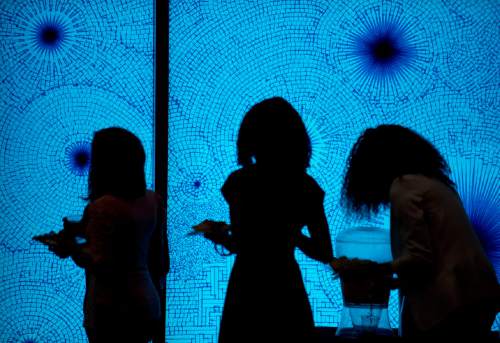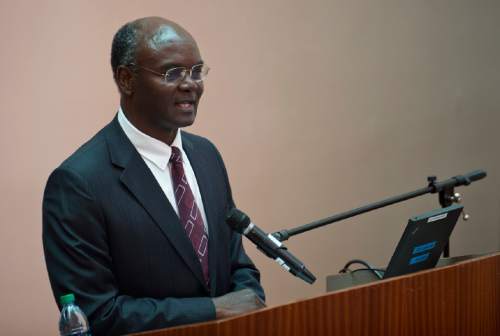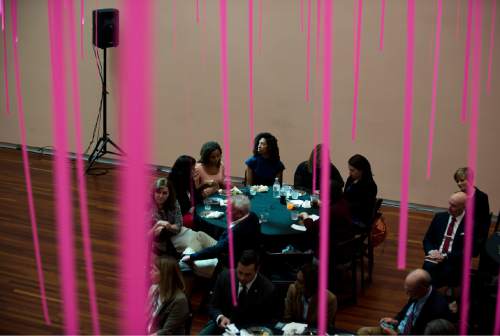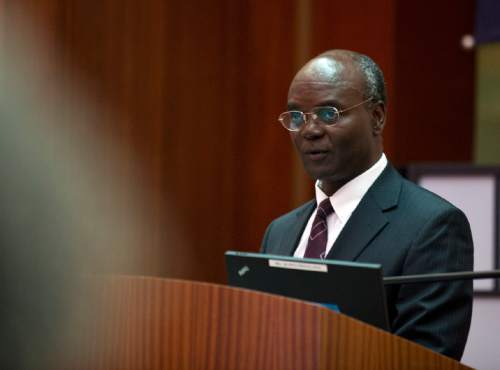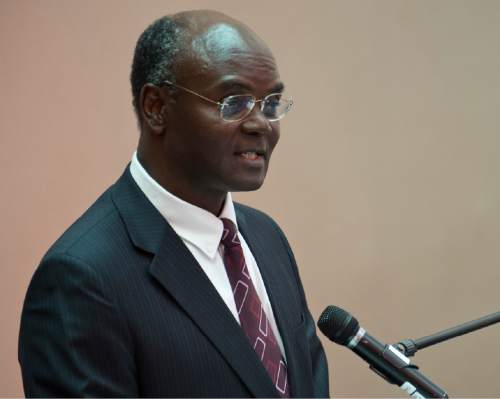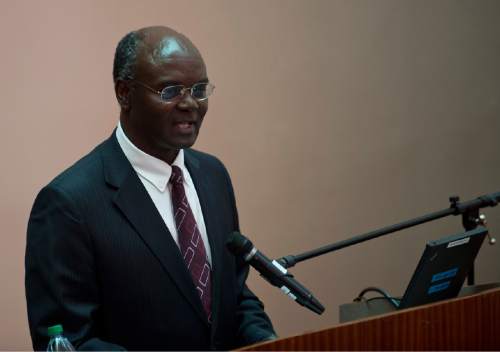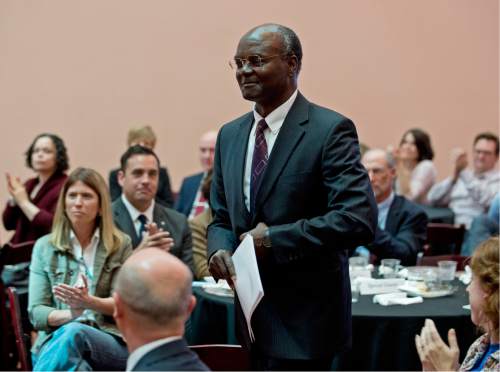This is an archived article that was published on sltrib.com in 2015, and information in the article may be outdated. It is provided only for personal research purposes and may not be reprinted.
Mormons in Africa are unaffected by their church's now-discarded ban on blacks being ordained to the faith's all-male priesthood, an African LDS general authority said Friday.
"Most active African saints know it is past," said Joseph W. Sitati, " … they look forward with faith."
Nor has the previous prohibition slowed proselytizing or growth on that continent, Sitati, the first black African in the church's First Quorum of the Seventy, said at a University of Utah conference titled "Black, White and Mormon."
Just days after the 15 million-member Church of Jesus Christ of Latter-day Saints named three Utah white men to fill three vacancies in the Quorum of the Twelve Apostles, the 63-year-old Sitati, a Mormon general authority for more than six years, keynoted the conference — in his case addressing the issue of race and international Mormonism.
In the 37-plus years since 1978, when the ban ended, he said, membership in the Utah-based faith has skyrocketed in sub-Saharan Africa from about 7,500 to 450,000. Another 45,000 African refugees and immigrants have been baptized in Europe, making up about 50 percent of the new Mormons in those countries.
Sitati, who was a bishop and an LDS stake president (regional leader) in Kenya, where he was born and where he and his wife were baptized in 1986, currently works with the church's Perpetual Education Fund. In addition to helping young Mormons pay for schooling, the fund is branching out to offer workshops and training in "self-reliance."
Still, the church in Africa faces an array of challenges, the LDS leader said. Many members are illiterate, young in the faith, don't have enough money for travel to weekly services and can't pay for their own missions.
In the years since Sitati and his wife, Gladys, have lived in Utah, he has become aware that African-American Mormons experienced the priesthood ban — which included denying black women the right to LDS temple rituals — differently than Africans.
"I cannot speak for African-Americans," he said. "Those who are affected by race … [must] find answers that give them peace."
Mormonism teaches that "all are alike unto God … black and white, bond and free, male and female," Sitati said, quoting LDS scripture. "None are denied the privilege of assembling to hear word of God."
The people of Africa hear in that message the "voice of the Lord," he said, untroubled by concerns of the past.
In December 2013, the LDS Church published an essay stating that the former priesthood prohibition apparently began under Brigham Young, the second Mormon prophet, and resulted more from societal racism than heavenly revelation.
Twitter: @religiongal


